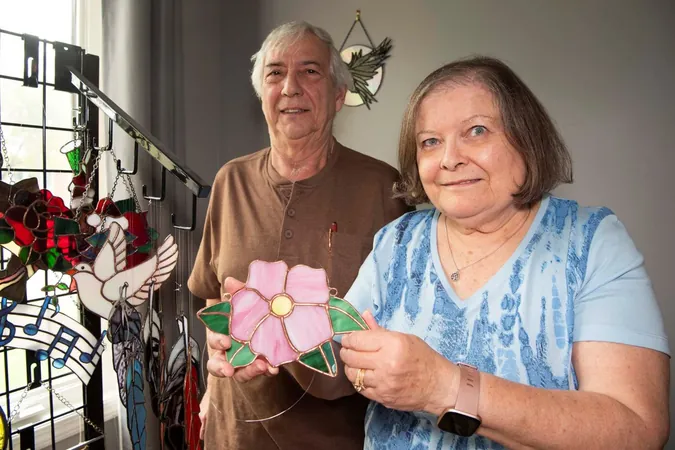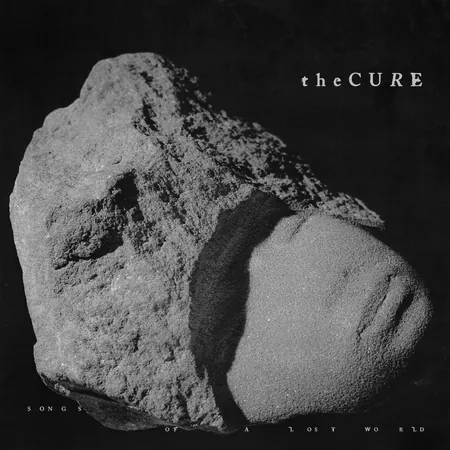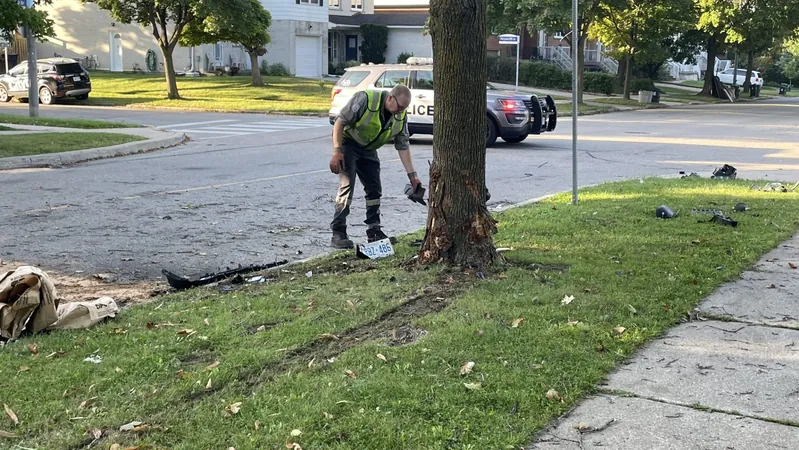
Celebrating Resilience: St. Albert Artists Honor Caregivers of Polio Survivors with Handmade Glass Art
2024-09-26
Celebrating Resilience: St. Albert Artists Honor Caregivers of Polio Survivors with Handmade Glass Art
While polio is a disease that many Canadians may overlook today, the impact of its legacy continues to resonate deeply with those who have survived its effects. For Rick Meunier, a 73-year-old resident of Akinsdale, the reminder of his battle with polio is evident in the physical differences in his legs.
"This is what’s left over from my polio," he explains, gesturing to the noticeably thicker sole of his left shoe. "My left leg is one-and-a-half inches shorter than my right."
Meunier currently lives with post-polio syndrome, a condition that has left him reliant on a cane due to muscle weakness. However, his current challenges haven't diminished his spirit or creativity. Along with his wife Ann, he has crafted 40 stunning stained-glass wild roses to honor the invaluable volunteers supporting polio survivors during the 25th anniversary celebration of the Wildrose Polio Support Society.
The Ongoing Legacy of Polio
Polio is a highly infectious disease caused by the poliovirus, leading to devastating nerve damage and paralysis. Although it affects less than one percent of those infected and has no cure, it can be effectively prevented through vaccination. The debilitating disease was once a major global health crisis before the introduction of vaccines in the 1950s. It paralyzed countless children, forcing many into lives reliant on braces and machines like iron lungs for survival.
Meunier recalls how he and his sister were both hospitalized with polio around 1953. He had to depend on braces and special shoes during his childhood due to the disease's effects. Meanwhile, fellow board member Bernd Schwanke, 77, remembers the day polio changed his life: "I was walking along, and then suddenly I fell over. I was paralyzed. My one leg didn’t work."
Both Meunier and Schwanke lived ordinary lives post-recovery, but today they face the realities of post-polio syndrome—a series of symptoms such as fatigue and muscle weakness that can develop decades later. Around 25% to 40% of those who had paralytic polio as children will eventually experience this syndrome.
Meunier first noticed symptoms in 1990 at work, finding it increasingly difficult to move. Now, with the assistance of Ann, a cane, and an electric stair lift, he navigates daily life. Schwanke's post-polio syndrome symptoms intensified about 14 years ago following a back injury, leading to a long diagnostic journey. The fatigue accompanying their conditions often leaves them feeling drained.
"The fatigue is the worst," Schwanke shared. "You're just so tired."
A Call to Action
With Canada officially declared polio-free since 1994, both men emphasize the importance of continued vaccination against polio and other contagious diseases. Although global vaccination efforts have drastically reduced cases, there remains a risk as vaccine hesitancy grows. Schwanke passionately stated, “We don’t want to have another epidemic hitting us.”
Currently, around 92% of Canadian two-year-olds are vaccinated against polio, but continued vigilance is vital.
The 25th anniversary celebration of the Wildrose Polio Support Society will be held on September 28, from 2 to 7 p.m. at the Royal Hotel West Edmonton. Tickets are priced at $20, and for more information, interested attendees can call 780-428-8842. This event not only celebrates the resilience of polio survivors but also honors the caregivers who play a crucial role in their ongoing journey. Join the fight against polio and be a part of this heartfelt tribute!









 Brasil (PT)
Brasil (PT)
 Canada (EN)
Canada (EN)
 Chile (ES)
Chile (ES)
 España (ES)
España (ES)
 France (FR)
France (FR)
 Hong Kong (EN)
Hong Kong (EN)
 Italia (IT)
Italia (IT)
 日本 (JA)
日本 (JA)
 Magyarország (HU)
Magyarország (HU)
 Norge (NO)
Norge (NO)
 Polska (PL)
Polska (PL)
 Schweiz (DE)
Schweiz (DE)
 Singapore (EN)
Singapore (EN)
 Sverige (SV)
Sverige (SV)
 Suomi (FI)
Suomi (FI)
 Türkiye (TR)
Türkiye (TR)